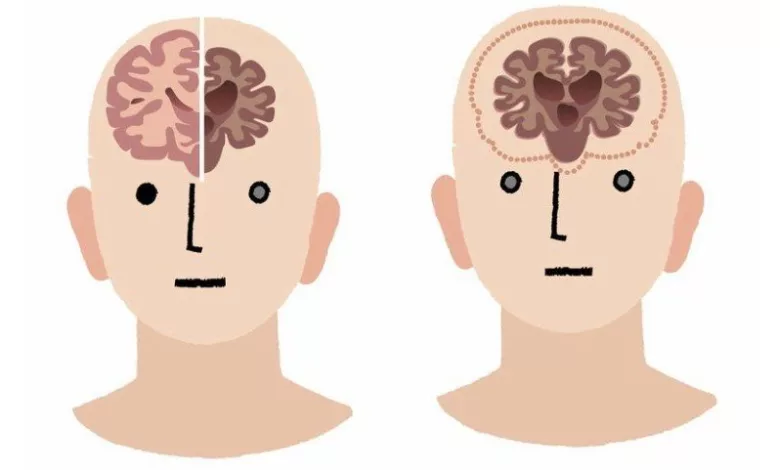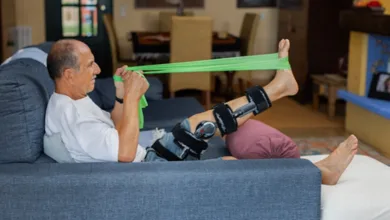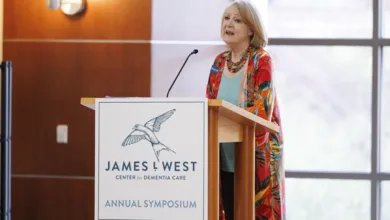7 Subtle Signs of Dementia

Originally published by TipHero.com | Above image by norwayblue via Deposit Photos ~
Dementia does more than rob people of their memories. Research continues to show that this complicated condition is marked by a number of symptoms — especially at the onset — but they are not always easy to recognize.
From frequent falling, to failing to recognize sarcasm, some of the dementia’s early warning signs are subtle.
How can you know if you or a loved one is showing signs of Alzheimer’s disease or other form of dementia?
Take a look at some of the earliest signs of dementia—You May be Surprised!
FREQUENT FALLING
Are you constantly tripping over your own two feet? Everyone falls now and again, but frequent falling could be an early sign of Alzheimer’s disease. The results of a 2011 study showed that those participants who exhibited early signs of Alzheimer’s also happened to fall down more often. People with the movement disorder, known as progressive supranuclear palsy, might not catch themselves on the way down either, making this dementia symptom even more dangerous.
DISREGARD FOR THE LAW
Some younger people at the beginning stages of early-onset dementia lose their sense of social norms. Shoplifting, and inappropriate interpersonal behaviors, such as sexual comments, or actions, all make the list of surprising dementia symptoms – and they can lead to legal trouble too. Early-onset dementia can hit people as early as their 30’s and 40’s, well before anyone around them would consider their out-of-character, law-breaking behaviors as signs of dementia symptoms.
MISSING SARCASM
You may or may not appreciate sarcastic senses of humor, but sarcasm is a part of our culture. Research found that people with both frontotemporal dementia (FTD) and Alzheimer’s disease tend to have a harder time picking up on sarcasm. Another unusual sign of dementia was that people with FTD couldn’t tell when someone was lying, although people with Alzheimer’s disease could tell. FTD patients don’t have that sense that things people do could turn out badly.
STARING
“Reduced gaze” is the clinical term for the dementia symptom that alters people’s ability to move their eyes normally. We all move our eyes and track with them frequently. But people showing early signs of dementia look like they are staring a lot. They try to read and they skip lines. This is one of the signs of dementia that the patient might not completely be aware of, although people around them will probably will be.
LOSING KNOWLEDGE
Now and again, most people find themselves desperately searching for the right word. In fact, failing to find the word you are thinking of is surprisingly common and not necessarily a sign of dementia. But losing knowledge of objects – not just what they are called, but also what they are used for, is an early dementia symptom. Oddly enough, people who are losing this knowledge can be very competent in other areas of their lives.
EATING OBJECTS
One surprising early sign of dementia is eating non-food objects of foods that are rancid or spoiled. This is partly because the person forgets what to do with the things in front of them. For example, dementia patients might try to eat the flower in a vase on a restaurant table because they know they are there to eat, but do not know what the flower is doing there. Unlike other Alzheimer’s symptoms or dementia symptoms, this one has few likely explanations.
LOSING EMPATHY
If someone who is usually sweet, considerate and polite starts to say insulting or inappropriate things, and shows no awareness of their inappropriateness or concern or regret about what they have said, they could be exhibiting an early sign of dementia. In the early stages of dementia, symptoms can include losing the ability to read social cues and, therefore, the ability to understand why it is not acceptable to say hurtful things.
**Remember that this condition isn’t just touching seniors – adults in their 30’s, 40s and 50s can also be affected. Other signs may include mood swings, resistance to change, feelings of apathy, or personality changes.
Originally published HERE.





